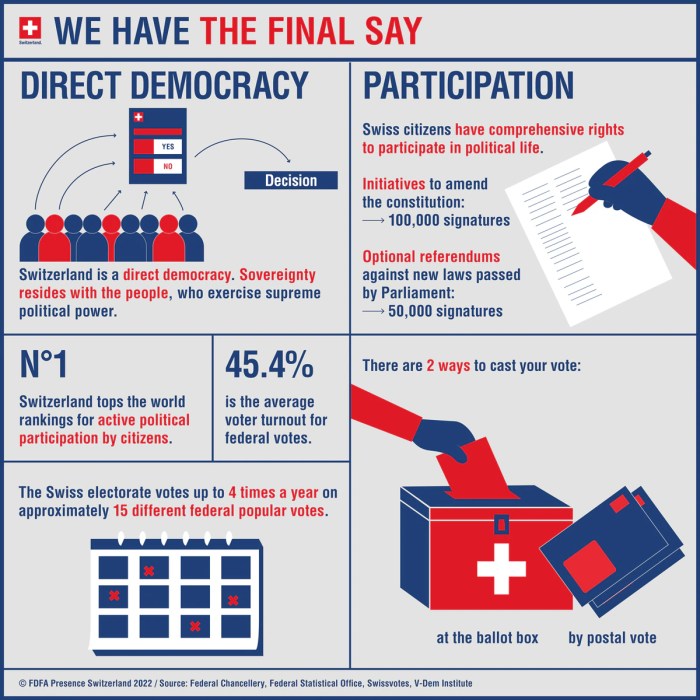A referendum is not purely direct democracy because the ________. – A referendum is not purely direct democracy because the role of elected representatives limits citizens’ decision-making power. Direct democracy, where citizens directly vote on laws and policies, differs from referendums, where representatives play a significant role.
Referendums provide citizens with a voice, but the ultimate decision-making authority often rests with elected officials, who may not always reflect the majority view. This limitation affects the decision-making process, raising questions about the true extent of direct democracy in referendums.
Direct Democracy vs. Referendum

Direct democracy is a form of government in which citizens directly make decisions on public policy without the involvement of elected representatives. In contrast, a referendum is a vote in which citizens are asked to approve or reject a specific proposal or policy put forward by the government or other authority.
While both direct democracy and referendums involve citizen participation in decision-making, they differ in key aspects.
One fundamental difference lies in the scope of issues that can be decided through these mechanisms. Direct democracy typically allows citizens to vote on a wide range of issues, including laws, constitutional amendments, and budget decisions. Referendums, on the other hand, are typically used to decide on specific proposals or policies that have already been developed by the government or other authorities.
Questions and Answers: A Referendum Is Not Purely Direct Democracy Because The ________.
What is the key difference between direct democracy and a referendum?
In direct democracy, citizens directly vote on laws and policies, while in a referendum, citizens vote on specific issues, but elected representatives retain the final decision-making authority.
How does the role of representatives limit direct democracy in referendums?
Representatives may not always reflect the majority view, and they can override the results of a referendum, limiting the direct impact of citizen votes.
What are the advantages and disadvantages of referendums?
Referendums provide citizen input and can increase public engagement, but they can also be influenced by special interests and may not always lead to well-informed decisions.

